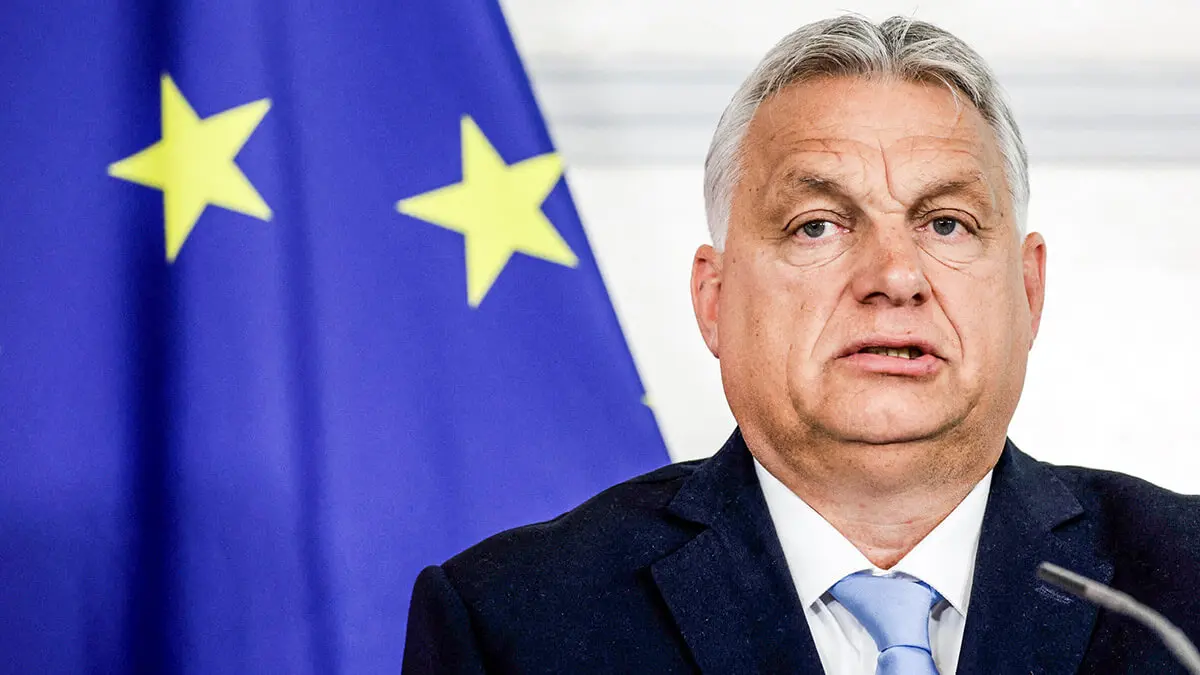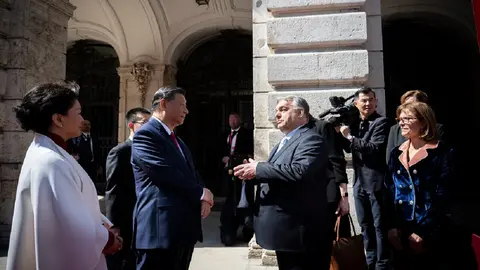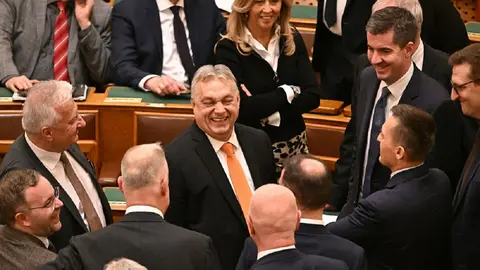Making Europe great again

- 1. Cohesion and European Solidarity
- 2. Security and Migration
- 3. Green and Digital Transition
- 4. Competitiveness and Economic Growth
- 5. External relations and EU enlargement policy
- 6. Fundamental Rights and the Rule of Law
- 7. Disputes
- Conclusion
Hungary, led by Prime Minister Viktor Orbán, took over from Belgium and assumed the rotating presidency of the Council of the European Union, which will last from 1 July to 31 December 2024. During this period, the Hungarian government will be responsible for coordinating EU policies and activities, facilitating dialogue and negotiation between member states.
The priorities of the Hungarian presidency reflect both the EU's current challenges and Hungary's national ambitions to influence the future direction of the bloc. Hungary should present itself as a loyal partner and facilitator of agreements and honour the commitments of its rotating presidency trio of Spain, Belgium and Hungary. This presidency is expected to be of great importance in view of the current challenges and the geopolitical situation after a Spanish presidency with governments in office in Spain and Belgium, both countries immersed in electoral processes. Likewise, a presidency that means a new 5-year legislature after the elections to the European Parliament on 12 June 2024.
The motto of the Magyar presidency is ‘Make Europe great again’, clearly inspired by Donald Trump's message in the last presidential elections: ‘Make America great again’.
The key points of the Hungarian presidency are seven: improving the competitiveness of the European Union; strengthening its defence policy; achieving a coherent and merit-based enlargement policy; preventing irregular immigration; shaping the future cohesion policy; developing a European policy that takes farmers into account; and courageously tackling demographic challenges.
1. Cohesion and European Solidarity
One of the pillars of the Hungarian Presidency will be to strengthen cohesion and solidarity among member states. Hungary will seek to promote policies that reduce economic and social disparities within the EU, supporting regional development and social inclusion. This includes encouraging investment in infrastructure and sustainable development projects in less developed regions, as well as ensuring a fair and equitable distribution of EU funds.
2. Security and Migration
Migration management and border security will be key issues during the Hungarian Presidency. Hungary will promote a strong approach to the protection of the EU's external borders and the fight against illegal immigration.
Budapest is expected to advocate for a reform of the European asylum system, striking a balance between shared responsibility and national sovereignty in the management of migration flows. In addition, cooperation in the fight against terrorism and organised crime will be a priority to ensure the EU's internal security.
3. Green and Digital Transition
The Hungarian Presidency will also focus on advancing the EU's green and digital transition agendas. Hungary will support the implementation of the European Green Pact, promoting policies that boost environmental sustainability and the fight against climate change. In the digital field, the Hungarian Presidency will promote technological innovation and the digitisation of European economies, prioritising the development of digital infrastructure and cybersecurity.
4. Competitiveness and Economic Growth
Promoting competitiveness and economic growth within the EU will be another key objective. Hungary will seek measures to strengthen the single market and improve the business environment, facilitating trade and investment. The Hungarian Presidency will focus on supporting small and medium-sized enterprises (SMEs), boosting innovation and job creation. In addition, a focus on industrial policy and the EU's strategic autonomy in key sectors such as energy and technology is expected.
5. External relations and EU enlargement policy
In terms of external relations, the Hungarian Presidency will work on strengthening the EU's position on the global stage. This includes the promotion of a coherent and unified foreign policy, as well as support for neighbouring countries and strategic partners. Hungary will also push forward the EU enlargement process, advocating the integration of the Western Balkans and supporting the candidate countries in their efforts to meet the accession criteria.
6. Fundamental Rights and the Rule of Law
Finally, although somewhat controversial, the Hungarian Presidency will address issues related to fundamental rights and the rule of law within the EU. Hungary will commit itself to fostering dialogue on these issues, seeking a balance between respect for the fundamental values of the EU and the sovereignty of member states. The Hungarian Presidency will seek to mediate in difficult debates and to promote cooperation and mutual understanding between Member States.
7. Disputes
Hungary is under a government described by experts as ultra-conservative according to the values and principles espoused by Prime Minister Viktor Orbán, who will be deciding the direction of the EU Council for the remainder of the year. The latter has not taken long to set off alarm bells among the leaders and members of the EU institutions, mainly due to trips to Moscow, China and a meeting with US presidential candidate Donald Trump with the aim of carrying out peace mediation work for which he does not have a mandate from the Council. It is true that Orbán's first trip was to Kiev, where he met with Ukrainian President Volodymir Zelenski.
In addition to this, there was initial criticism based on the absence of Ukraine as one of his priorities. In response, the EU has chosen to partially boycott the Hungarian presidency by a symbolic act of disapproval of the Hungarian prime minister's trips and meetings. The EU has endorsed that no commissioners will be sent to informal meetings in Hungary, only senior officials will be sent.
Conclusion
The Hungarian presidency of the European Union in 2024 will be a crucial period to address a number of challenges and opportunities facing the bloc. Through its priorities focused on cohesion, security, sustainability, economic growth, external relations and the rule of law, Hungary will seek to make a significant mark on the future direction of the EU. The effectiveness of its leadership will depend on its ability to mediate and build consensus among member states, promoting a stronger and more united Europe. Likewise, this period will surely see how senior officials and members of the European institutions will deal with such strong and in many cases antithetical positions as Viktor Orbán's. What is clear is that Viktor Orbán's will not be the only one who will be able to build a stronger and more united Europe. What is clear is that the Europeanism of the Hungarian people cannot be questioned and that disagreement with positive proposals should always be welcomed, always seeking unity and consensus, but recognising the possibility of loyal disagreement with the European integration project.
Carlos Uriarte Sánchez
Secretary General of Paneuropa Spain
Vice-President of the European Coudenhove-Kalergi Society
Professor of Law at the Universidad Rey Juan Carlos



